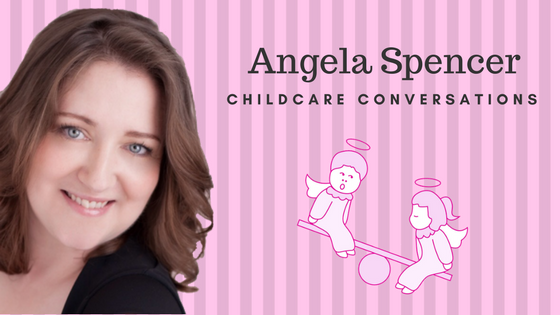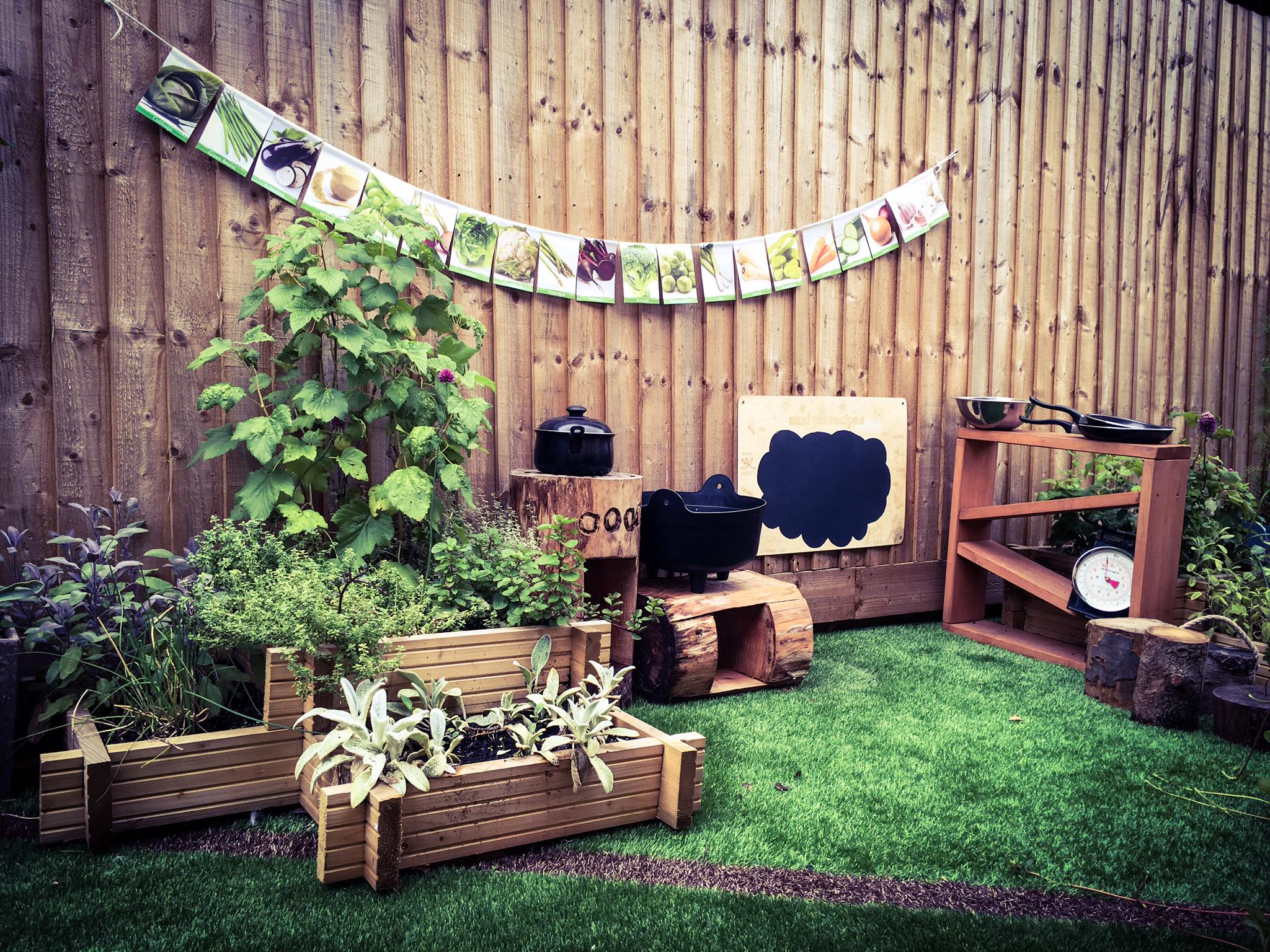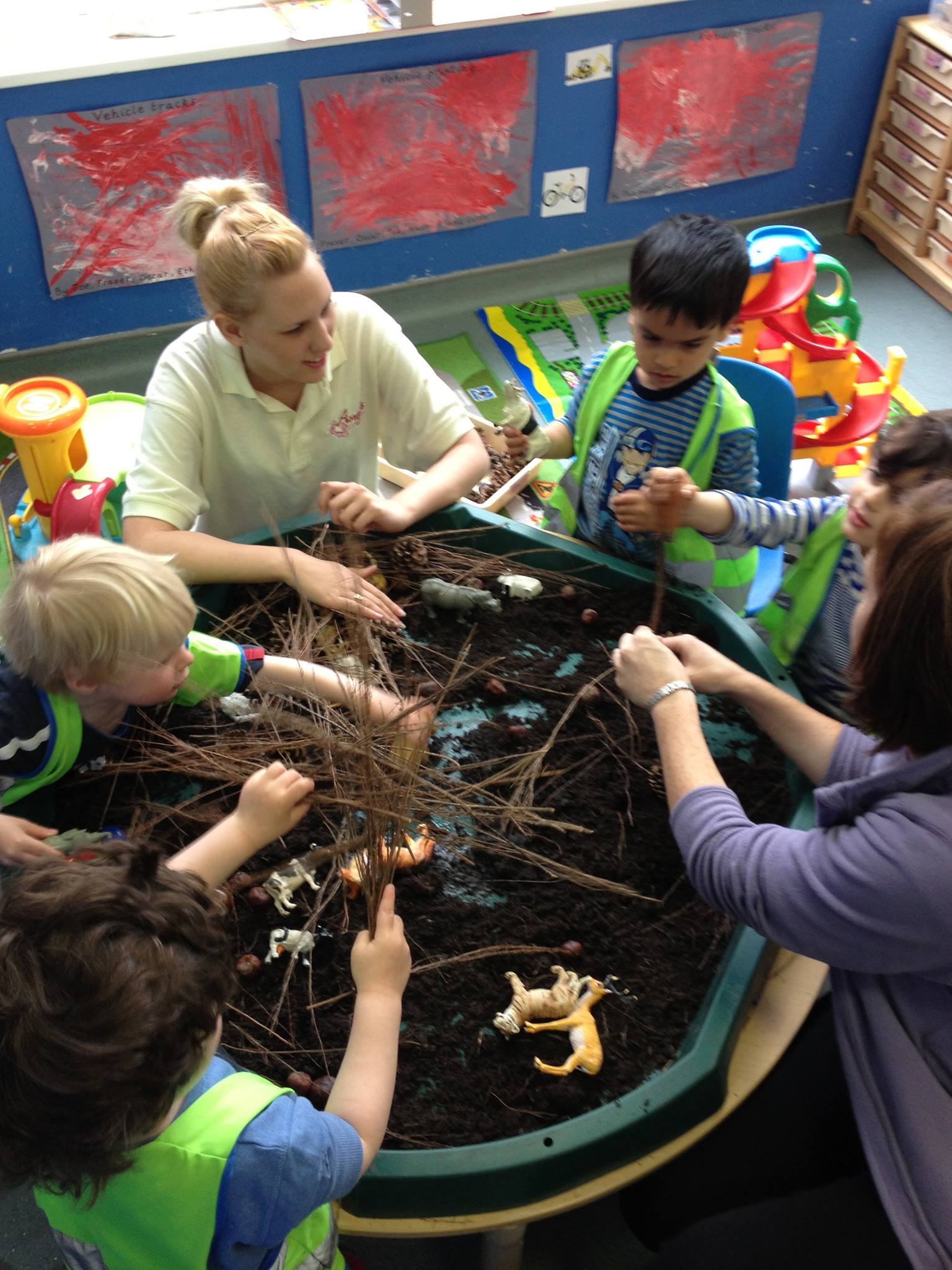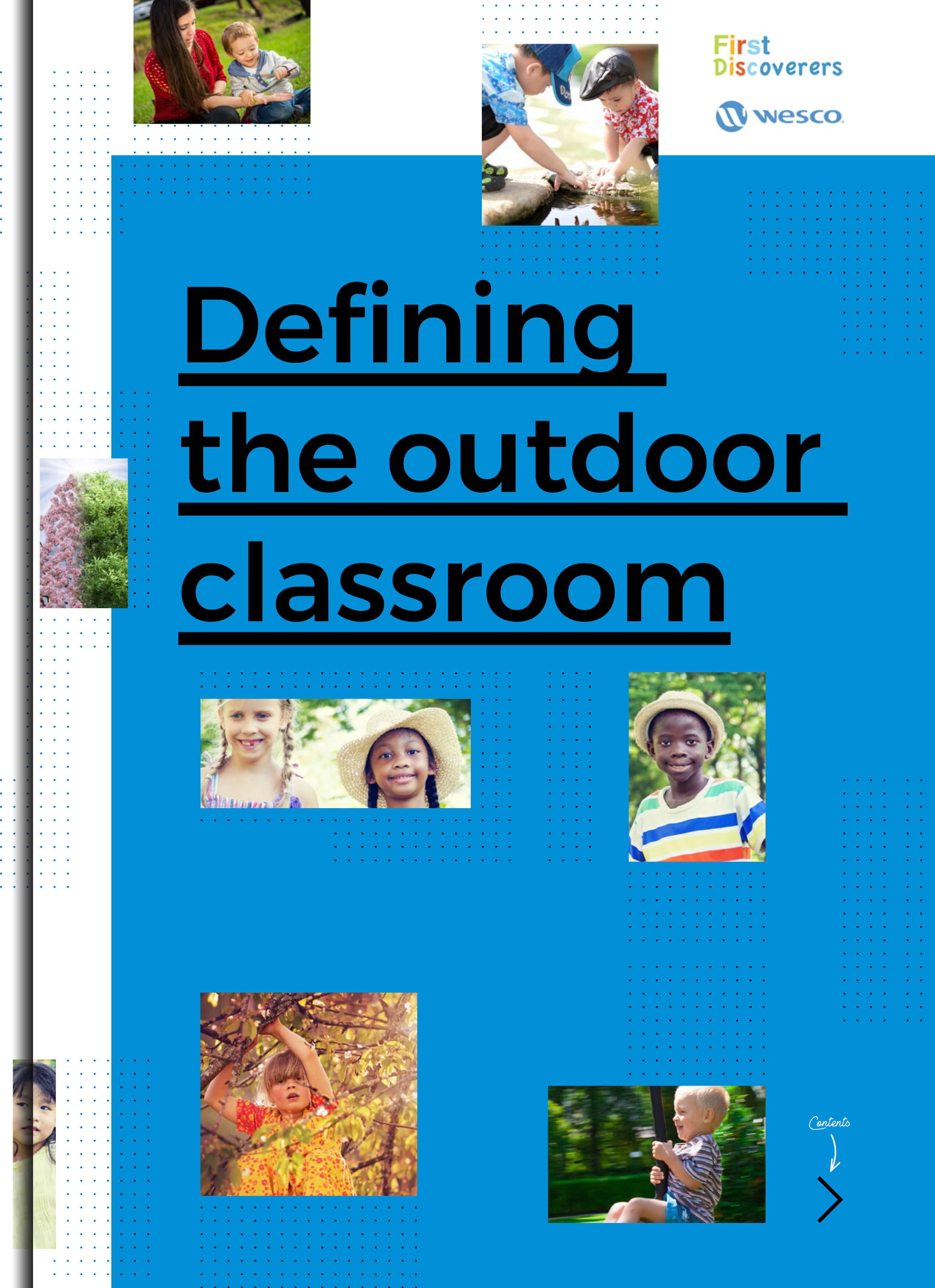
Childcare Conversations
Interview: Angela Spencer, Owner of Angels at Play
Angela Spencer is an award-winning author, blogger and baby wellbeing expert who regularly shares her expertise online, in national publications and on both television and radio. Angela has owned and operated children’s nurseries for over 24 years, opening her first in 1993 at the age of 21 and was recently recognised as one of the Top Ten Most Influential people in childcare. We caught up with Angela to chat about her most recent projects and her thoughts on the current challenges facing the childcare sector.
Thank you for agreeing to chat with First Discoverers. First off, can you explain what initially drew you to working in the early years sector?
I was actually working in the personnel department for a large pharmaceutical company some 25 or so years ago and my job was to visit all of the maternity leavers when their baby was 6 weeks old to see if they would be returning to work. The issue for most was the lack of childcare in the area. So I decided I would leave my job and open a nursery – it was much easier to do so back then!
Angels at Play have been rated outstanding by OFSTED, but what would you say makes a successful childcare setting?
You have to have passion and drive to want to do everything 100%, for me that includes constantly researching what I can add to my well-being & developmental programmes to make them better -nothing is ever perfect!
What do parents value most about your setting? Do you feel this tallies with what Ofsted and the DfE ask for from you?
No, absolutely not! What my parents value the most is the attention to detail of care and well-being we have in place. The fact I have researched children’s nutrition, energy and developmental needs to the point we have a unique programme of 4 meals a day and our children sleep in the morning. The level of detail that is in our Babyopathy (under 1’s) programme as Ofsted and the DfE seem to have forgotten this age group and it is the most important at nursery. All of the children need to be cared for first and foremost and we put everything into the well-being and development of our children. The ‘learning’ therefore comes naturally and this is something that Ofsted do not even look for in a setting – education is their focus for the Government funding purposes! I could go on about how Ofsted and the DfE are failing our children and how damaging the 15 & 30 hrs is too!
How important is having access to adequate facilities and equipment to a setting?
Facilities are vital, if you are caring for someone else’s child it should be the best it can possibly be but that doesn’t mean it has to have thousands of pounds worth of plastic toys etc. Our programme is based upon the biophilia hypothesis and so much of what the children play with is natural resources that they are encouraged to use their imagination with. We utilize things you would find around the home so that parents can continue the interaction at home too. However, we also need to ensure that we have sufficient facilities for the number of children in our care and are particularly proud of our new gardens at our largest nursery, children do not play outside in the dirt enough anymore.

What kind of support do you get for early intervention, where children have SEND? Has access to additional support improved or got worse over the last 5 or so years?
It has got drastically worse to the point where I have to employ a member of staff two days per week just to fight for what our children need. We have seen a huge increase in speech delays which I believe stem from the original decision years ago to change the weaning advice, for no good reason for our country. We have seen increases in physical delays, especially in the babies that start with us from 9 months onwards as parents seem to have lost the support network of advice in how to encourage development, but again it is also impacted by the weaning advice. We have also sadly seen an increase in children with mental health issues which from my own research I believe stems from the issue of stress during pregnancy and maternal mental health which is why I am launching a campaign called ‘Routine in the Womb’ at The Baby Show in October.
What skills would you say are absolutely vital for a childcare professional?
Passion for the job, it is a vocation and not just something you should do because you don’t know what else to do. It is poorly paid in the first years and you need to have absolute passion and dedication to learn for yourself because the current qualifications do not teach them enough. Our staff need to be valued as professionals but sadly they are not.
If staff leave me it should be because they are ready to progress and I have nowhere for them to progress to – then I have done my job right!
What is your approach to recruitment/retention and what do you see as best practice in this area, including in terms of helping to build a diverse workforce?
Well, I have to say all of my Deputies and Managers have been with me 17 years or more and most of my Room Supervisors of similar length. I personally value my staff as professionals. I hold an annual training day for them all and this is one of my most vital messages every year – value yourself, make yourself the best you can be. If staff leave me it should be because they are ready to progress and I have nowhere for them to progress to – then I have done my job right!
In your view, what should children ‘learn’, or ‘gain’ from their time in early years care?
Children should first and foremost feel safe, secure and nurtured. From here they should be allowed to find their uniqueness, their individuality. They should have a sense of exploration and be inquisitive. My Babyopathy & Nascuropathy programme for over 1’s, is about baby/child led development – give a child an experience and they will want to know more. So our job is to give them a multitude of experiences, of language and opportunities as then their potential is limitless. Sadly, Ofsted & the DfE want us to breed a nation of ‘averages’ and to not celebrate where a child can shine for fear it may upset another child – but every child has a right to shine where their uniqueness and ability grows, every child has a right to be celebrated in their ability whatever that may be, big or small, we do not all have to be the same to succeed.
What would you say are currently the biggest problems that childcare settings face?
Where do I start? Regulation, it is grossly unfair – it needs to be a percentage based system so that parents can see the difference between a GOOD setting at say 79% and a GOOD setting at 41% – the difference is huge and would make those settings that need to improve work harder. If you are not prepared to work harder to gain a better percentage should you even be looking after children?
Financial – the pressures on childcare financially are now huge! All of the subsidies we had years ago are gone and in their place we have a forced fee for spaces in the shape of 15 & 30 hours FEE. Childcare needs to be zero rated for VAT so that settings can afford to compete in premises and for services etc that are becoming increasingly expensive. We are continually put under financial pressures by Government policies and cut backs to the point where we cannot value our workforce the way we would like to.
I would also say parental perception though is now a challenge. When I first started over 24 years ago, parents chose to return to work, therefore they also chose us. They wanted childcare and so our parental relationships were very different. Now, there is no choice for most parents and they have to return to work and so they have to use us, they don’t want to and it is quite often a much harder relationship.
Fighting over the same business is also an issue. We used to have a customer base from when the children were 12 weeks until the term of their 5th Birthday when they went to school – this has been halved! SMP means that babies are now on average 9 months old on starting and most leave us by 3 and a half as state schools still play the ‘you have to use our nursery if you want a Reception place’ card. We are fighting over the same ‘business’ but the standards we each have to provide are very different and childcare is losing!
“Whoever thought it was a good idea to make the rules such that mums would be pretty much forced to return to work during the crucial developmental stage of separation anxiety should be ashamed of themselves.”
Finally, the current SMP rules also are having a detrimental effect on the mental well-being of babies, their parents and the staff! Whoever thought it was a good idea to make the rules such that mums would be pretty much forced to return to work during the crucial developmental stage of separation anxiety should be ashamed of themselves. It is traumatic for the baby, for the parents but also for the staff who struggle to bond with and soothe a baby left for the first time during this stage. It is having an effect on the stress and mental wellbeing of staff as well as the families – but no one acknowledges it!
Are you offering the 30 hours entitlement? If not, why not?
Sadly we have to to survive or our children will leave to go elsewhere because families need financial help!
How are you going about making your setting financially sustainable, in the face of inadequate funding for the EYE offer?
There is no way other than to increase fees. However, we have only put in place a smaller increase for the under 3’s this time and a higher increase for the over 3’s wrap-around care.
We’ve been talking a lot recently about the benefits of outdoor play, how do you incorporate this into your setting/s?
As previously mentioned, our programme is based around the biophilia hypothesis and so outdoor play and playing with natural resources as well as our other programme influences are integral to the children’s day.

If you could make two changes within the early years sector, what would you like to see?
Childcare and education need to be two completely separate services for children as fighting over the same business is damaging. Continuity used to be a major requirement in the standards but that has fallen by the wayside to allow for Government policies in state funded settings meaning children can have numerous settings and carers by the time they get to school. Children should be in a care based setting focused on their well-being and development until the age of 5 (in my world ideally 6!) and allowed to shine in their own unique way. Their development nurtured instead of stunted and on a downhill slide to regression the way it is now.
Second, whilst I would like to see the removal of the funded hours in its current form and zero rate for VAT introduced, I think I would actually like to see a more valued profession and fairer regulation as I think it would bring much better quality and in turn opportunity for the children.
What would be your advice to anyone considering a career in childcare?
Do it because you want to know everything there is to know about how you can nurture and develop babies and children to their fullest potential and be prepared to study and research in your own time as current courses do not tell you half of what you need to know. It should be a lifetime of research and learning for you too, as it has been and still is for me.
What makes you passionate about the job?
Knowing that with everything we do, we are making a difference in however small way it may be to each and every child we care for. We are giving them the best opportunity we possibly can and if I could do that for more children, I would.
And finally, If you could choose just one, what would you say has been your best ‘ I love my job’ moment?
Over 24 years there have been far too many to pick just one. Thousands of children and families and hundred’s of staff have passed through our doors and each and every one has brought something to my life in childcare and I wouldn’t change a single one!
Find out more about Nascuropathy, Babyopathy and Angels at Play here
Our Childcare Conversations series aims to showcase a cross section of leading voices from the world of childcare talking about their roles, offering advice, comment and views on topical issues. This time around we’ve decided to shine the spotlight on settings and have chatted to several nursery managers from around the UK, all of which were recently voted in the top 10 most influential people in childcare at the Nursery Manager Today (NMT) awards.
Angela J Spencer has owned and operated children’s nurseries for over 24 years, opening her first in 1993 at the age of 21 years old. After neither of her children slept through the night for their first three years, Angela decided to research deeper in to child development and everything that can nurture or have an adverse effect on it. This research quickly took the route of sensory stimulation and the first programme called Natural Care was introduced in 2000. The research did not stop there however, and from using her own natural imagery within the nurseries Angela began researching the impact of the natural world on development and came across the Biophilia Hypothesis. Further extensive research on how both this hypothesis and sensory stimulation naturally combined could have a direct positive affect on not just baby’s development after birth but whilst in the womb also, led to the creation of Angela’s new programmes – Babyopathy for Pregnancy, Birth and the First Year and Nascuropathy – 1 year and beyond!
Angela is now an award-winning author, blogger and baby wellbeing expert and was featured in Mother & Baby magazine as ‘The New Routine for 2017’. She is a Reiki Master, Crystal Practitioner and qualified Aromatherapist as well as being recognised in 2017 as one of the Top Ten Most Influential people in childcare. She also regularly writes for national publications and is called upon for television and radio for her expertise. 2017 saw the launch of her campaign ‘Routine in the Womb’ raising awareness of both the new and recommended way to know your pregnancy is progressing and highlighting the effects that a mother’s stress when pregnant can have on the unborn baby and ability to carry a baby to full term.
Defining The Outdoor Classroom – Download Free eBook





You must be logged in to post a comment Login